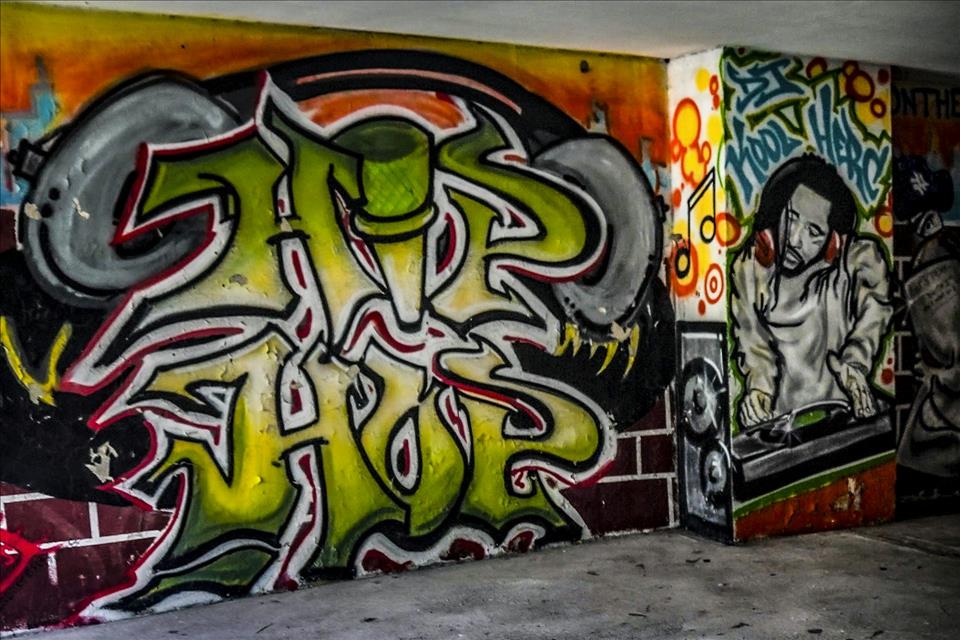
Through Hip-Hop, Black Youth Are Teaching Their Communities About Their Rights, Justice And The Law
As education scholar Bettina L. Loves notes, in hip-hop-based education, young urban and Black children and youth find space to critically reflect on the world around them .
To explore the potential of hip-hop and rap music as a platform for research and translating relevant knowledge related to various types of Canadian law, RISE Edutainment, an arts-based youth organization, piloted their Legal Artivism program .
RISE stands for Reaching Intelligent Souls Everywhere. This longstanding organization is based in Scarborough, Ont., in the Greater Toronto Area, and serves racialized communities throughout the GTA.
Entering into public discourseRap music - as one of hip-hop's four main elements (the other three are DJing, breaking (dance) and graffiti) - can provide young people an opportunity to enter into public discourse using cultural competencies and skills that are familiar to them .
For researchers interested in understanding and studying young people, rap music offers a platform to allow young people to share their lived experiences through more accessible language than surveys or interviews.
Using rap music to discuss research offers a form of arts-based knowledge translation for researchers to share ideas, research findings and information. In this way, research that was previously only in journals and reports is made into music that young people already listen to.
RISE's Legal Artivism program“promoted access to justice to socioeconomically marginalized and racialized youth, teaching them about their rights, how to navigate justice and education systems , and culturally specific supports available to them.” Through a nine-month residency program, emerging Black artists learned about the Canadian legal system. Through poetry, music and visual art, they shared this information back to their communities. Youth were supported to become“artivists,” or arts-based activists, in the process.
Artistic mentorsOrganized in to three parts, the program first taught the artists about all the different types of law in Canada. Artists were exposed to employment law, immigration law, criminal law and entertainment law. Artists picked which area(s) of law most interested them and were paired with a legal expert to help them research their area.
In the second phase of the program, artists were paired with an artistic mentor that helped them draft and edit their art, which included rap music, singing, spoken word poetry and visual art.
In the third phase, artists recorded their track (or perfected their visual art pieces , in the case of one participant) and began performing their pieces for the community.
The artists debuted their pieces at the Centre for Young Black Professionals , a charity that addresses economic and social barriers affecting Black youth, and also performed at several high schools.
Read more: Mentorship is key to improving social and economic outcomes for Black youth
Artists' identities as knowledge translatorsI undertook research and evaluation on the program. As the researcher, I sought to understand how the artists viewed themselves as knowledge translators and“artivists” after this program.
Artists were invited to participate in semi-structured interviews about their relationship to art, activism and the program. Their song lyrics were also analyzed to see how they reflect the sentiments highlighted in the artist interviews. The results mirrored what research tells us about the power of hip-hop culture.
Read more: 50 years of hip-hop: Its social and political power resonates far beyond its New York birthplace
On each performance occasion, the audience discussions highlighted the new legal information gained, and the racism the audience members have similarly witnessed and experienced within the legal system. Through the experience of creating and performing music and art, the artists felt they had gained skills integral to their artistic practice. They also gained a strong sense of resistance identity rooted in Black and racialized communities.
Artists gained a platform and experiences translating knowledge. (Pixabay) Insights from growing up
One participant, Venesha“Just Venting,” highlighted this in her interview when she spoke about the importance of positive representation of her stigmatized community:
In her song,“Token to Corporate ,” she says:
These lyrics highlight some of the ways Eurocentric education and employment marginalizes and harms Black youth in varied ways. Education scholar Carl James and colleagues note in the report Towards Race Equity in Education: The Schooling of Black Students in the Greater Toronto Area that strategies to address anti-Black racism across many aspects of schooling are needed.
Read more: Dismantling anti-Black racism in our schools: Accountability measures are key
Becoming community leadersMore than simply making art or sharing legal information, participating in translating knowledge transformed these artists into community leaders with a platform and sense of purpose. Participant Jaimie Ivory highlighted this shift in his music after the program:
His song,“Labels ,” focusses on legal knowledge needed when facing criminal charges, and how to obtain a pardon.
The song discusses the importance of not allowing past deeds and a criminal record to define one's life. He addresses racial profiling experienced by Black people, pushes back against stereotypes and uses his music to empower others to build a positive sense of self beyond negative labels. In his chorus, he says:“You want to label me as a criminal/do your background check Mr. Officer/that was seven years ago.”
Using arts-based knowledge translation and hip-hop to engage communities offers a way to share important information in a format that adopts to the needs of community.
Famously labelled“the Black CNN” by rapper Chuck D, hip-hop and rap music have always been an avenue to get important information out.

Legal Disclaimer:
MENAFN provides the
information “as is” without warranty of any kind. We do not accept
any responsibility or liability for the accuracy, content, images,
videos, licenses, completeness, legality, or reliability of the information
contained in this article. If you have any complaints or copyright
issues related to this article, kindly contact the provider above.


















Comments
No comment